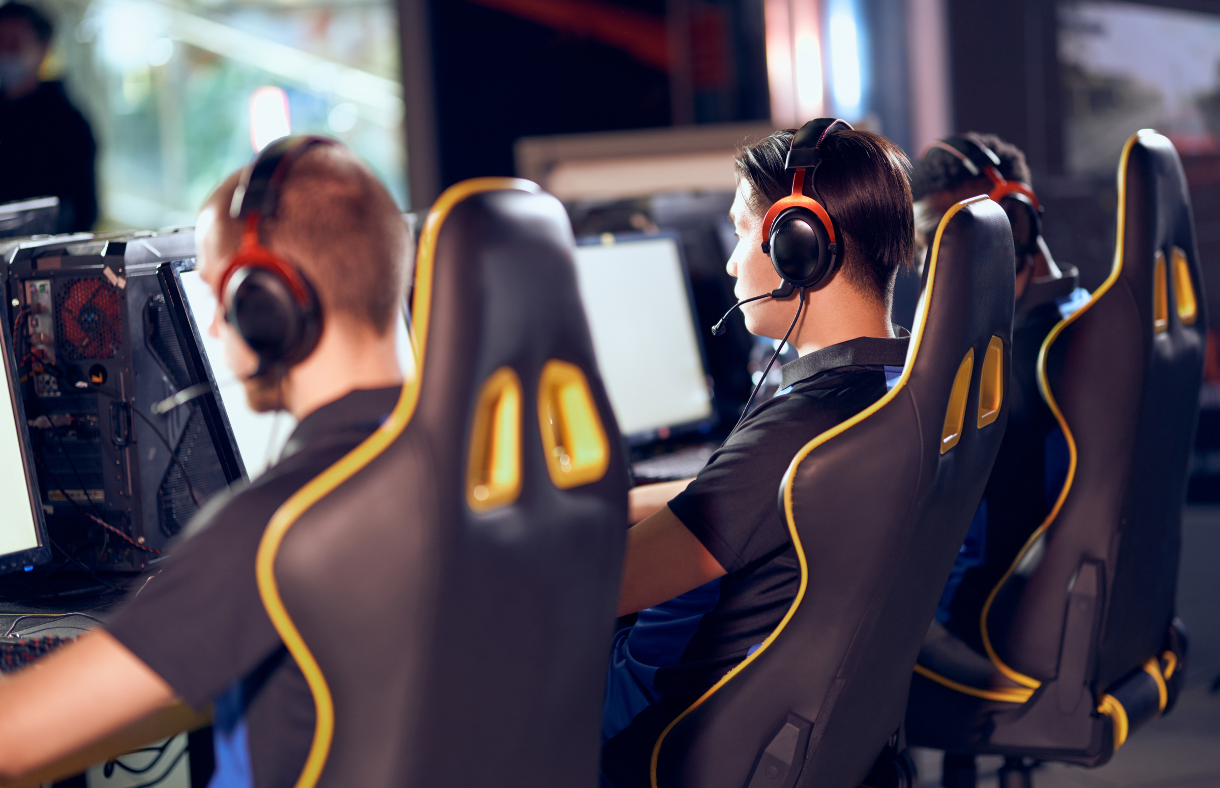Since the earliest days of video games, non-gamers have fretted about children or partners “wasting time” on such allegedly mindless activities. Even now that gaming is a multibillion-dollar global industry, serious gamers are often pictured as unemployed, reclusive, overweight, squinting behind thick glasses, and barely aware that the real-life world exists.
It’s a typical example of unjustified stereotyping. Gamers come in all personality types and age/ethnic/gender/education/employment demographics. And for a sizable number, including many with disabilities, gaming opens new and better horizons.

More Than Just Play
No less an authority than the Princeton Public Health Review has debunked the idea that video games are inevitably “mindless.” Among other things, regular game playing is associated with mental flexibility, ability to make decisions under pressure, and reduced dementia.
Among people with disabilities, video games and e-sports (the organized-competition form of gaming) are particularly valued for honing confidence—and for introducing players to inclusive communities. Virtual gaming groups and e-sport tournaments open new opportunities to share personal stories, encourage fellow gamers, and be seen as just “one of the group” rather than “the one with multiple sclerosis/autism/Tourette syndrome.”
That said, the overall gaming community is still far from universally inclusive. In December 2022, Easterseals launched ES Gaming and the Discord Community to “create a new standard for equity, inclusion, and access among all disabled gamers, and [amplify] disabled voices and accessible innovations to deliver a more inclusive space in an ever-evolving industry.” (Visit the ES Gaming website for information on planned events, which will include e-sports tournaments, fundraisers, contests, and Meetup programs.)
Call for Inclusiveness
“Disabled voices lack representation in the gaming space, despite representing 1 in 5 gamers,” notes Easterseals in relation to ES Gaming. “The gaming industry is constantly evolving, but it’s not always inclusive, accessible, or welcoming. Accessible equipment exists, but it is expensive.”
“We need more influencers and outreach to more players,” adds Kelly Klein, Development Director at Easter Seals Greater Houston. “I’d love to get more people signing up for new info, just getting engaged. Increasing exposure between persons without and with disabilities reduces stigma in and of itself.” Klein recommends Erin Hawley’s “Geeky Gimp” website as a resource: “Well known inside and outside of the disability community, she is the greatest ambassador reducing stigma by taking it head on.”
Another recommended resource is AbleGamers, which is dedicated to “Combating Social Isolation Through Play” and “Conquering the Accessibility Divide.”
Personal Perspectives
Even a small community of fellow players arms a gamer against isolation. Here’s what two gamers with disabilities have to say about their experience. (See also comments from Matthew Stephenson in our October 6 post, “The World of Cerebral Palsy.”)
Gamer/BridgingApps reviewer Christopher Wright:
All the people I play with, aside from my immediate family, are blind like me—probably because I mostly play audio games, which aren’t very popular in the mainstream community. But I do love playing online with other people. Two of my favorite sites are the Quentin C Playroom and Sound RTS: Quentin C is an online platform with games such as Monopoly and Hearts, and Sound RTS is a strategy game in the style of World of Warcraft. I’ve also found a community of like-minded individuals through a YouTube channel where I demonstrate blind-accessible games.
If you’re looking to expand your social circle through gaming, all I can say is to first find activities or communities that interest you, and you’ll meet some interesting people along the way. I met my best friend from Idaho on RS Games, and we’ve been talking since early 2010. It’s a shame that sighted people aren’t more interested in trying audio-only games, but even with my small channel, it’s been incredible talking to people from all over the world.
Ross, young-adult gamer with autism:
I have stayed connected to my high school friends through gaming. Try to find a group of people who enjoy the same things you do, and stick with them. I personally prefer story-driven games so that I can escape the real world for a while.

Quick Note on Life Balance
The purpose of escaping the real world is not only to forget your immediate struggles, but to recharge and to engage in activities that build confidence for real-world challenges. And the main concern beyond the old “mindless” stereotype is that the temporary escape will become the end goal. It’s not an entirely unjustified fear. A small percentage of players do develop gaming disorder—a toxic game-playing obsession that crowds out all other priorities.
The fact that some people develop excessive-gaming problems doesn’t mean you or your loved one should avoid all playing, any more than the existence of eating disorders means everyone should take all nutrition intravenously. However, especially if there is any type of addiction in your family, it’s best to keep an eye on overall life balance.
- Schedule specific times of each day/week for gaming—and also for exercise, work, sleep, non-screen hobbies, and outdoor time.
- If you have trouble planning and keeping a regular schedule, ask a friend or family member to hold you accountable (and preferably to do some activities with you). You can also talk to a counselor for perspective on what’s reasonable and realistic.
- Turn off all screen devices an hour before bedtime. Ideally, leave them off until after breakfast the next morning.
- If logging off on schedule remains a problem, set your computer to shut off game apps/websites after a specified amount of use.
- If you still can’t seem to sign out on schedule—and especially if you have other dependence symptoms such as neglecting daily responsibilities, or experiencing serious mental/physical pain if you miss any regular gaming time—get advice from a licensed counselor or a doctor.
- Make a list of everything you enjoy in life, digital and otherwise. Post this list as a regular reminder to make time for it all.
See BridgingApps database for additional recommendations on games and gaming apps.
See Easter Seals Greater Houston website to request downloadable ES Gaming resources or additional information.

